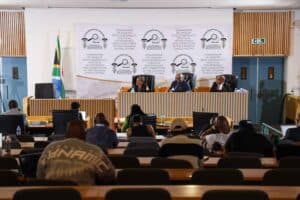The latest Economic Freedom of the World (EFW) index, which measures the degree to which the policies and institutions of countries support economic freedom, has ranked South Africa 94th with Russia ahead at 87th. The latest global ranking comes as a monumental tumble from the 46th position South Africa held in 2000 – at that time, South Africa was revered as one of the world’s freest countries.
The report measures the economic freedom — the ability of individuals to make their own economic decisions — by analysing the policies and institutions of 162 countries and territories. These include regulation, freedom to trade internationally, size of government, sound legal system, property rights, and government spending and taxation.
Rounding out the top 10 are New Zealand, Switzerland, Ireland, the United States, Georgia, Mauritius, the United Kingdom, Australia and Canada (joint 10th). The 10 lowest-ranked countries are Sudan, Guinea-Bissau, Angola, Central African Republic, Republic of Congo, Syria, Algeria, Argentina and Libya, with last place going to Venezuela.
“If South Africa is to increase prosperity and reduce unemployment and poverty, it is essential that the financial sector be allowed to function as freely and efficiently as possible without stifling bureaucracy, and that true judicial independence be restored expeditiously,” says Free Market Foundation executive director Leon Louw.
Size of government
As government spending, taxation, and the size of government-controlled enterprises increase, an individual’s choice is substituted for government decision-making – and economic freedom is reduced. South Africa’s ranking has moved from a score of 5.97/10 in 1980 to 6.04 in 2016, with the government wage bill taking a toll on the economy’s fiscal space.
The International Monetary Fund, after its consultations with South Africa this June, echoed the sentiment, noting: “A large public-sector wage bill relative to the size of the economy and to that in many peer emerging markets is at the centre of the fiscal expansion. Therefore, rationalising the public-sector wage bill becomes a priority.”
Maarten Ackerman, chief economist and advisory partner at Citadel, says: “South Africa’s wage bill rates terribly compared to other OECD [Organisation for Economic Co-operation and Development] countries and the main reason for that is since 2008, job creation has been primarily in the public sector.”
In addition to the massive public wage bill, recent wage increases have increased wage inflation pressure. Ackerman adds:
“The public sector is costing government too much. The World Bank estimates that Eskom is 66% over-staffed and that it is an example of a sector that has too many people for the productivity that it is putting out.”
The recent OECD competitive index revealed that South Africa ranks quite low in terms of labour flexibility, particularly with regards to how hard it is to hire or fire someone. Ackerman adds: “In terms of policy reform, the election year is here and you cannot expect an aggressive cut in the wage bill.”
Legal system and property rights
Protection of persons and their rightfully acquired property is a central element of both economic freedom and civil society. Indeed, it is the most important function of government and South Africa, with its policy uncertainty, has seen a decline in these metrics.
The report also highlighted a decline in judicial independence from 7.18 in 2000 to 6.52 in 2016.
Policy uncertainty continues to obstruct capital flows into South Africa. As Ackerman says: “Despite some of the positive changes we’ve seen, the message that we get when we speak to foreign investors is that they cannot commit long-term capital until they get clarity on the land issue.”
Freedom to trade internationally stagnant
This aspect of the index scrutinises the freedom to exchange: in its broadest sense, the buying, selling and signing of contracts. The report’s methodology reduces a rating when freedom to exchange does not include businesses and individuals in other nations.
Despite being the continent’s most industrialised country, the latest index reveals a deficit in the movement of aspects related to production, with tariffs still impeding movement.
“We need to focus on the requirements needed to go through an industrialisation phase,” says Ackerman. “We have the resources and the labour, but we need incentives for industrialisation hubs to open up. You do not protect less competitive industries through tariffs, but rather provide incentives to attract investment.”
South Africa, however, scored a stellar 10/10 on the black-market exchange rates scorecard.
Brought to you by Moneyweb







